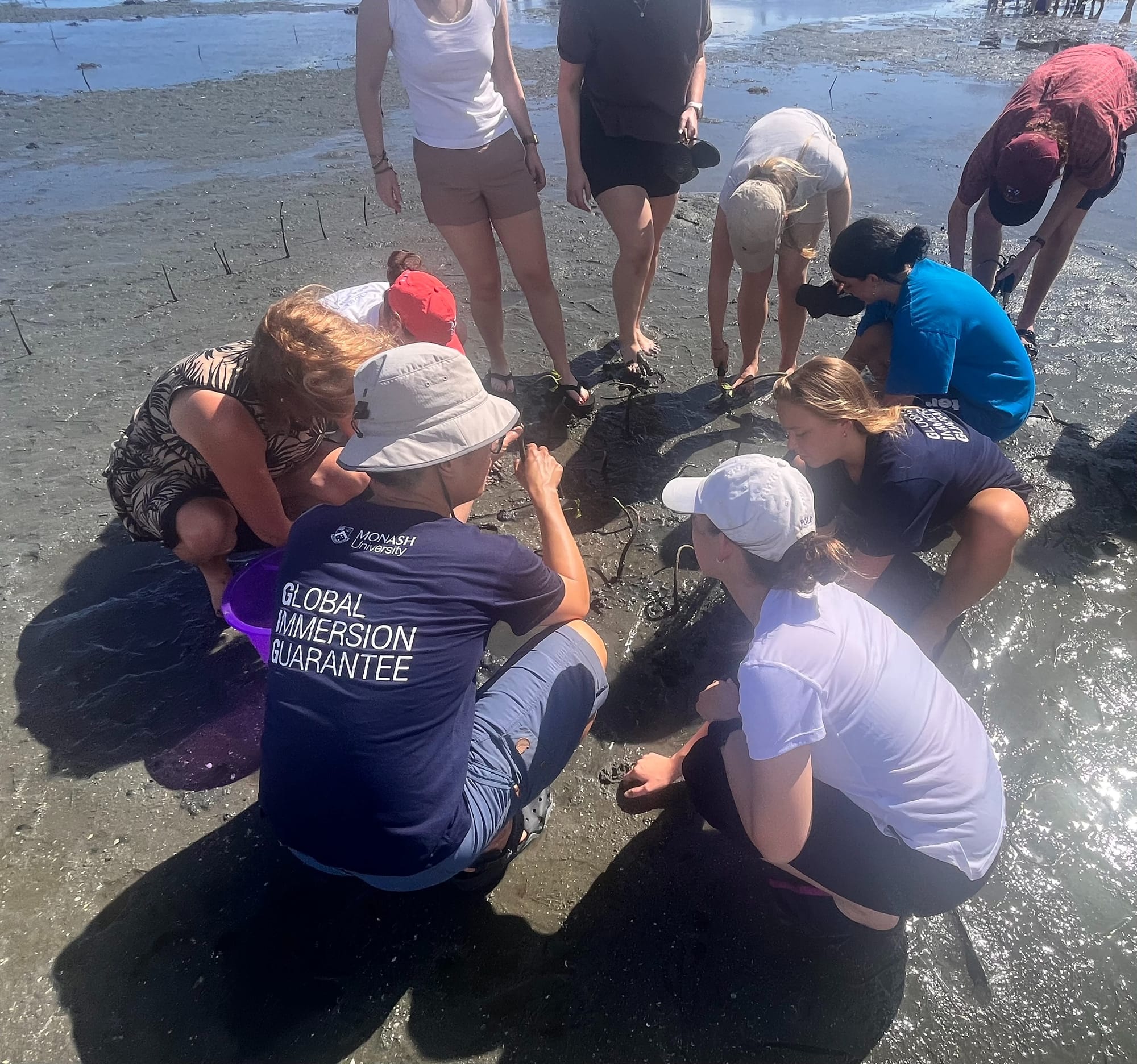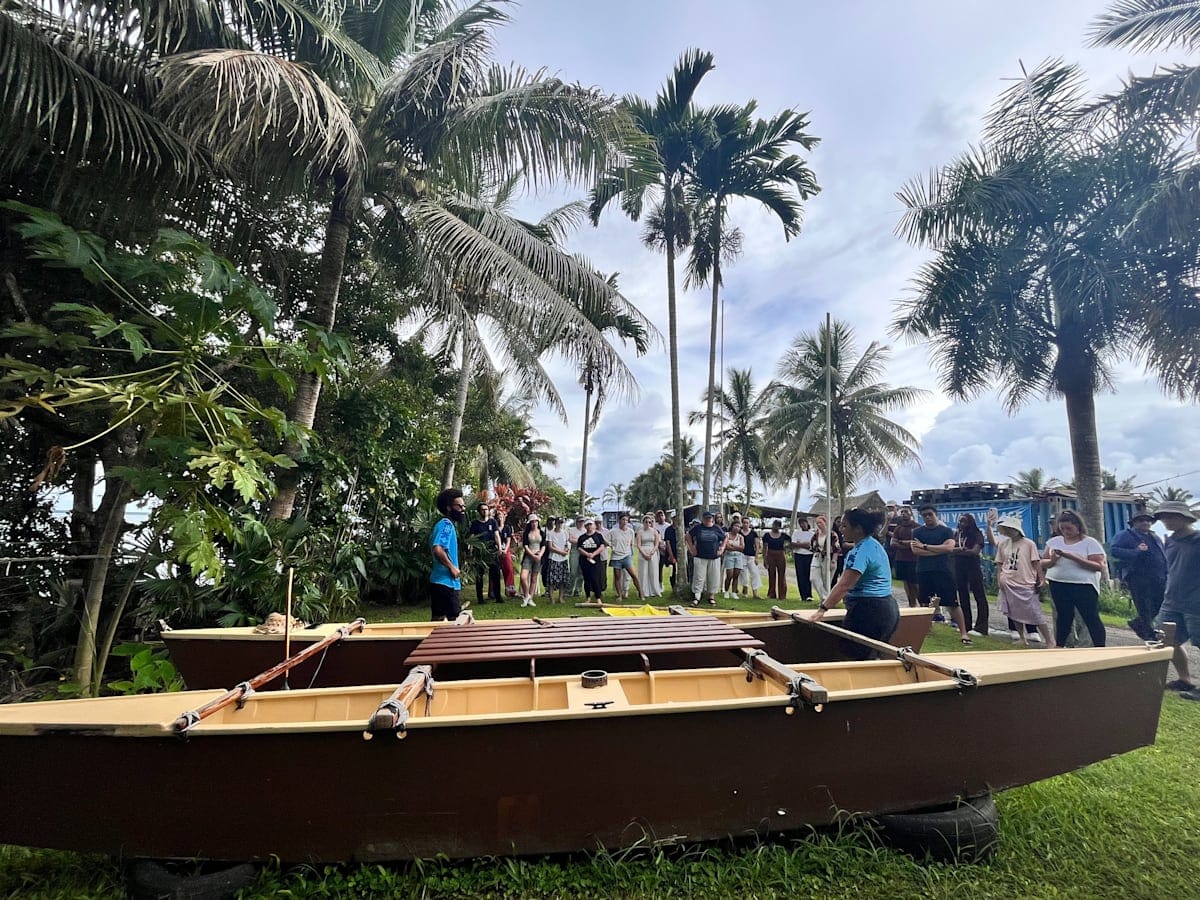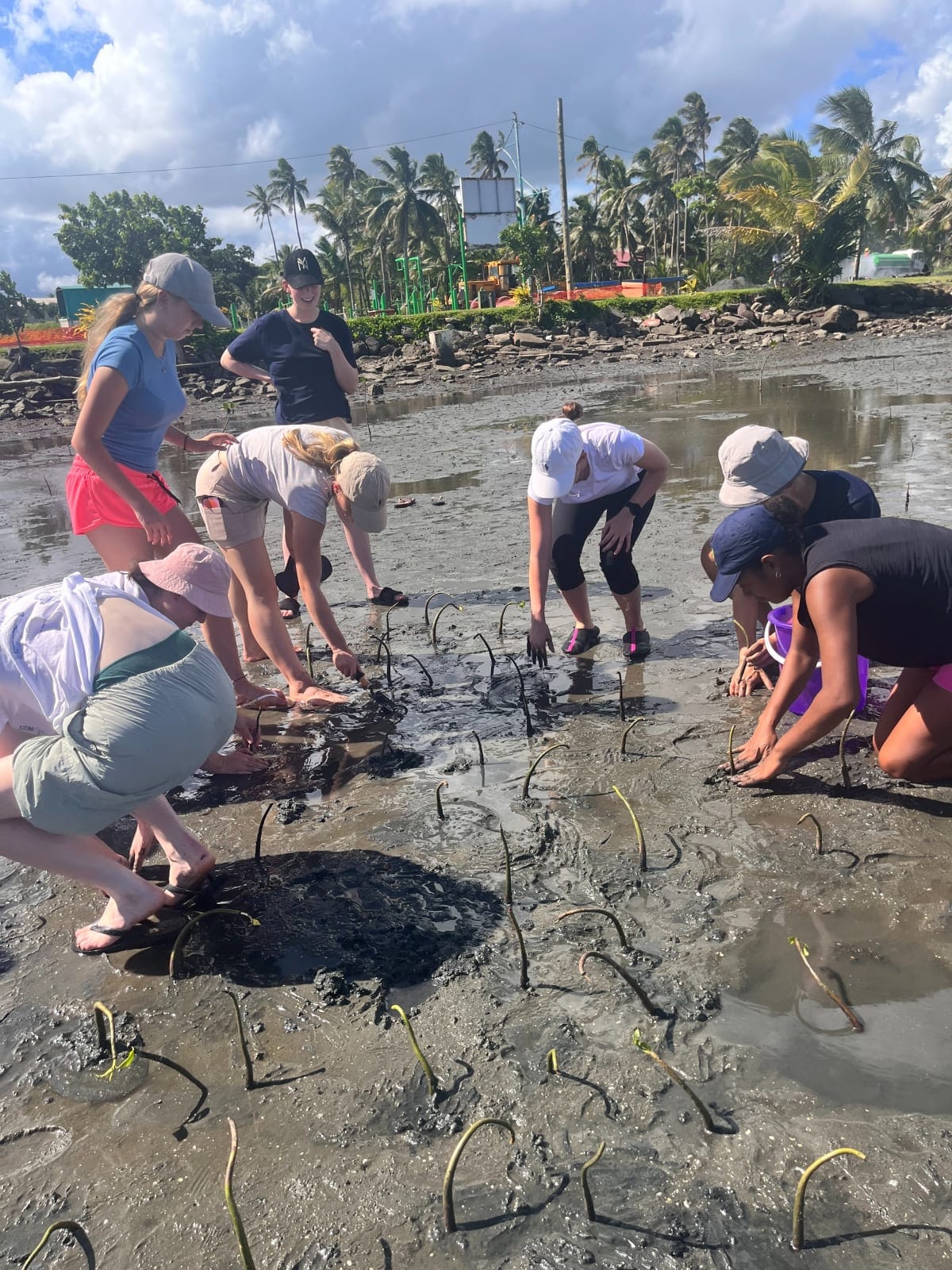
The issues of rising sea levels, biodiversity, and marine health are crucial to Australia and the Pacific region. The state of the natural environment affects where and how people live, and has massive implications on economic activity, as well as employment and education prospects.
Within this context, we were fortunate enough to have the opportunity to take a group of Monash University students to Fiji to learn about sustainability as part of the Global Immersion Guarantee (GIG).
In the capital, Suva, and on numerous field trips, we experienced and observed first-hand the initiatives Fijian youth are undertaking in response to the existential threat of climate change.
Every day, Fijians are dealing with the effects of climate change, rising sea levels, erosion, and the destruction of their marine environment.
Read more: Pacific Island countries lead the world in reporting on global warming
As a country comprising more than 300 Islands, and a population of less than one million, the risk of much of Fiji being submerged by rising sea levels is real – 42 villages have so far been earmarked for potential relocation to higher ground, and six have already been moved.
Furthermore, “every new cyclone or disaster brings with it the risk of yet more villages being added to the list”.
As more villages are forced to relocate, the impact on culture and community across Fiji is increasingly devastating, and may create challenges regarding identity, belonging, and connection to land.
As coastal villages in Fiji confront the reality of climate change, the government estimates more than 600 communities could be forced to move, with 42 places under urgent threat.
Graves sink, fisheries shrink as climate change hits Fiji pic.twitter.com/MtyXoZfVp6— Elizabeth Thomas (@Elizabe84887891) February 15, 2023
Young Fijians are spearheading many innovative solutions to combat the threat of climate change, but how youth can address climate change is complex.
On the one hand, traditional Fijian culture pays deference to elders, and youth are expected to learn by passive observation of their elders and remain largely silent unless called upon.
Along with women, young people can be excluded from village discussions on important matters. However, this expectation of youth passivity can become problematic, because more than 60% of the Fijian population is under 35 (sometimes referred to as the “youth bulge”), and many of them are keen to become “leaders in civil discourse, politics and the climate justice movement”.
In Suva, we had the opportunity to engage with many of these youth leaders. We learned about POLYP (Pacific Ocean Litter Youth Project), a youth program to collect plastic waste washed up on the foreshore and repurpose it into works of art (Fiji has no recycling program), as well as how youth are regenerating coral that has been bleached by rising sea temperatures or destroyed by the cyclones that have been striking Fiji with increasing intensity.
In addition to these initiatives, we found two youth-led programs that were particularly impressive and ambitious.
Sustainable sea transportation
Fijians have a proud history as voyagers, exploring the seas in double-hulled sailing canoes known as druas. Fijians also have a strong history of storytelling, and the Fijian youths we met told us that at the time of colonisation, the druas their ancestors built were stronger and faster than any British vessel.
That the indigenous Fijians had superior vessels infuriated the colonisers, which led to them banning Fijians from building or using druas. As a result, for more than a century, Fijians didn’t use or pass on their traditional knowledge and skills.

The Uto ni Yalo Trust was established as a non-profit organisation to revive the art of building, navigating and sailing druas as sustainable vessels. The Fijian youth of today are rekindling indigenous knowledge and traditions to create more sustainable sea transportation, based on the philosophy that "to go forward we need to look back".
They have built 21 drua to give to each of the coastal villages on Beqa, Moturiki and Kadavu islands, as an alternative to the commonly used, non-sustainable, fibreglass boats with diesel engines, which contribute to pollution.
The only “string” attached to the gift of a drua to a village is that the village must send one or more young people to Suva to participate in a two-week course in which they learn how to sail, navigate and maintain the canoe.
Through this youth initiative, communities are shifting from environmentally-unfriendly diesel engine boats, which are expensive to run and dependent on imported parts, to clean, sustainable vessels that are not only free to run and made from locally-sourced materials, but also rekindling traditional seafaring practices.
Mangrove restoration
The overdevelopment of the Fijian coastline for luxury resorts, along with an increasing number of adverse weather events (including cyclones Winston in 2016, Yasa in 2020, and Ana in 2021), has seen the destruction of many mangrove forests.

Mangroves moderate tidal energy and play a vital role in mitigating the impacts of climate change. For example, mangroves:
- store up to five times more carbon than tropical rainforests
- are the first line of defence against cyclones, high winds and storm surges
- provide habitat for fish and other marine species
- trap sediments and pollutants, which helps maintain the water quality
- protect against erosion.
Alliance for Future Generations is a Fijian youth initiative set up to restore mangrove habitats along the Suva coastline. Their activities include using innovative methodologies to plant mangrove seedlings, monitoring their growth, and developing outreach programs and mangrove planting sessions for groups such as the Monash GIG students. Their efforts have already yielded a significant increase in mangrove habitats, with more to come.
Although Fiji contributes less than 0.01% of total global CO₂ emissions, it’s on the frontline when it comes to rising sea levels.
Fijians can’t afford to wait for the big emitters of CO₂ (China and the US being the largest globally) to “fix the problem”.
The youth of Fiji are combining modern science with traditional knowledge to develop innovative responses to the immediate, existential threat climate change poses. We saw first-hand their commitment to mitigating the impacts of climate change, and how their initiative, ideas and knowledge are raising awareness and changing the way this small Pacific nation is responding.
The Global Immersion Guarantee (GIG) is Monash University's flagship international study initiative. It’s a two-week, funded fieldwork unit where first-year students from all faculties (eligible degree course) have the opportunity to go on a short-term study trip to one of six countries.





